
The therapy, already FDA-approved for individuals with pulmonary artery disease, was significantly associated with reduced likelihood of Alzheimer disease in both the 65-74 year range and those older than 75 years.

The therapy, already FDA-approved for individuals with pulmonary artery disease, was significantly associated with reduced likelihood of Alzheimer disease in both the 65-74 year range and those older than 75 years.

Ballard, a professor of age related diseases at University of Exeter, discussed the results from a recent trial of pimavanserin in dementia-related psychosis, and data presented at this year’s AAIC meeting.

Findings presented at AAIC 2021 found that long-term, daily treatment with non-invasive stimulation was both safe and well-tolerated in patients with Alzheimer disease.

Pooled data from the phase 3 clinical development of aducanumab (Aduhelm; Biogen) suggest that ARIA remains a mostly asymptomatic problem, with MRI providing an effective way to monitor events.

The agent, which is FDA-approved for hyperlipidemia, showed significant improvements in plasma glucose, lipid levels, and trends in cardiovascular imaging biomarkers.

Clive Ballard, MD, discussed up-and-coming technologies for remote risk assessment, among other data presented at this year’s AAIC meeting.

The director of the Lou Ruvo Center for Brain Health and neurologist at Cleveland Clinic detailed the state of Alzheimer disease and what research particularly grabbed his attention at AAIC 2020.

The postdoctoral fellow at the University of Miami Miller School of Medicine detailed the role that increased APOE ε4 expression can have on future research and clinical care.

Katrina Celis, MD, a postdoctoral fellow at the University of Miami Miller School of Medicine, discussed how ancestral genetics can play a key role in Alzheimer disease risk.

The investigators wrote that the Alzheimer’s Association “Part the Cloud” funded 24-week treatment trial is now warranted after sargramostim showed a safe and tolerable profile.

Data from 2 posters presented at AAIC 2020 suggest that there is an unmet need for safe and effective treatments for patients who experience dementia-related psychosis.

The director of the Memory Disorders Program and professor of neurology at Georgetown University Medical Center detailed the phase 2 study findings of nilotinib in patients with Alzheimer disease.

Excessive alcohol intake, head injury, and air pollution are among the newest dementia risk factors added to the Lancet Commission report.

The director of the Memory Disorders Program and professor of neurology at Georgetown University Medical Center details his findings from the phase 2 study of nilotinib in patients with Alzheimer disease.

The postdoctoral fellow at the University of Miami Miller School of Medicine detailed her study presented at AAIC 2020 that examined Alzheimer risk associated with APOE ε4 in different genetic populations.

Multiple studies presented at AAIC 2020 highlight and confirm previous hypotheses of the role that early life cardiovascular risk factors play for individuals who develop late life dementia.

The data suggests that a planned multiple ascending dose study and a phase 2a proof-of-concept study in patients with mild cognitive impairment could be on the way.

Results presented virtually at AAIC 2020 support a larger, multi-center, phase 3 study to determine the safety and efficacy of nilotinib in patients with Alzheimer disease.

Compared to treatment with lisinopril, those treated with the angiotensin receptor blocker candesartan showed improvements on the Trial Making Test part A and B and Hopkins Verbal Learning Test-Revised delayed recall.

Additional data presented at AAIC 2020 shows the clinical benefit pimavanserin has on dementia-related psychosis while the agent awaits a PDUFA date of April 3, 2021.

The performance of p-tau217 was similar to significantly more costly methods, such as PET imaging and measuring cerebrospinal fluid biomarkers.

A trio of studies presented at AAIC 2020 suggest that consistently vaccinations for influenza and pneumonia may reduce the incidence of Alzheimer later in life, as well as mortality for older adults.
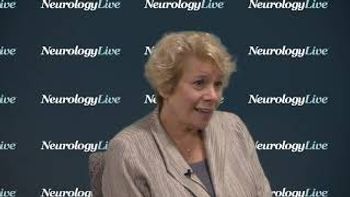
Sperling sat down with NeurologyLive at AAIC 2019 to discuss her thoughts on efforts to detect and treat Alzheimer early on in the disease.

The professor of emergency medicine at the University of Wisconsin-Madison School of Medicine and Public Health discussed the impact that telemedicine, conducted in senior living communities, can have on emergency department visits for individuals with dementia.
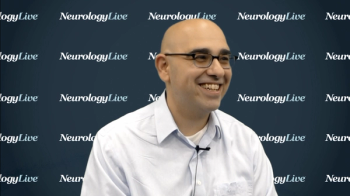
The assistant professor and cognitive neurologist at the University of Pennsylvania Frontotemporal Degeneration Center will share additional insights on Alzheimer disease at the upcoming International Congress on the Future of Neurology, taking place September 27-28, 2019 in New York City.

The professor of neurology and founding chair of the John T. Macdonald Foundation Department of Human Genetics at the University of Miami discussed the distinctions between Alzheimer disease risk of ethnicities that share genetic markers.
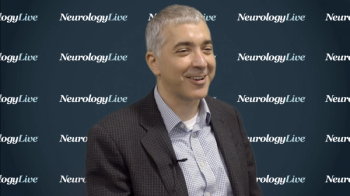
The co-director of the University of Pennsylvania Memory Center will share additional insights on Alzheimer disease at the upcoming International Congress on the Future of Neurology, taking place September 27-28, 2019 in New York City.
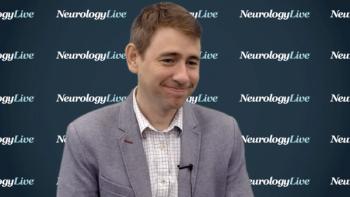
The associate professor of neuroepidemiology and digital health spoke about the importance of findings from an observational study which showed that adherence to a healthy lifestyle can offset the genetic risk for dementia.

The topic was the focus of a lively panel discussion and several posters at the 2019 Alzheimer’s Association International Conference, where experts in the field debated on the validity of current findings and theories.
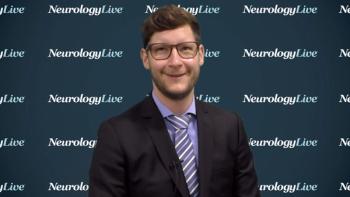
This data demonstrates that patients with Alzheimer disease are at an increased risk for seizures, in particular in more advanced disease stages, which emphasizes a need for seizure history assessment to inform individual therapeutic decisions and the necessity of systematic treatment studies.